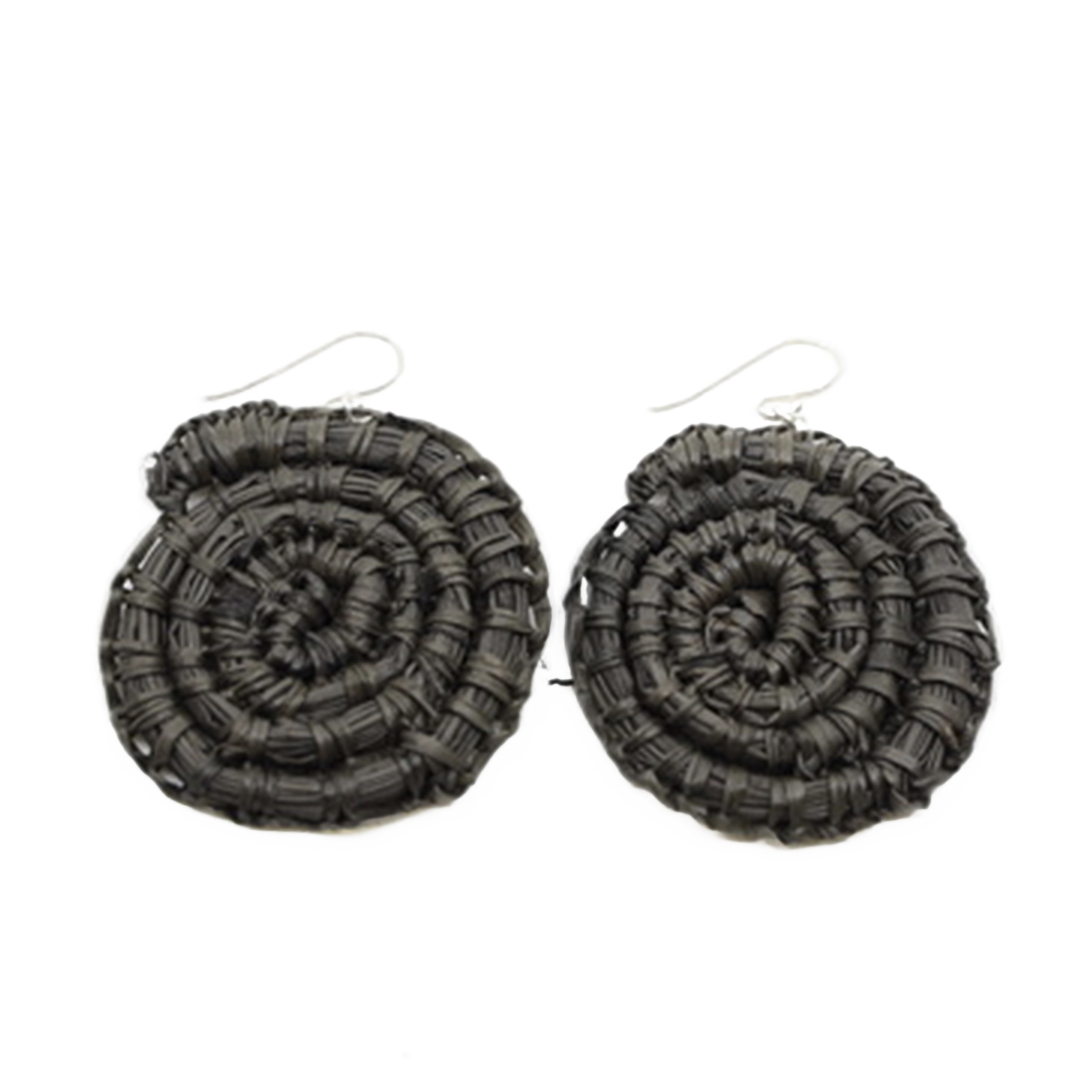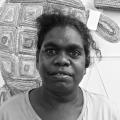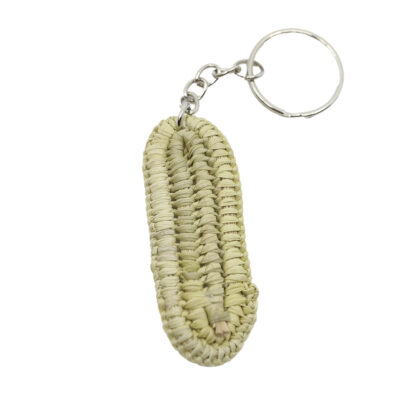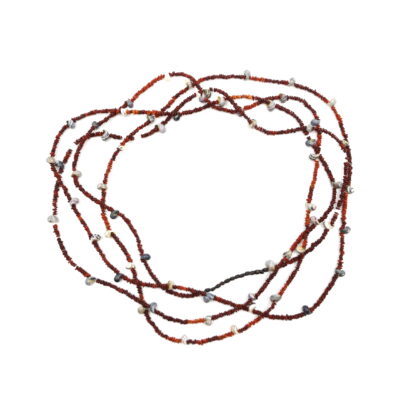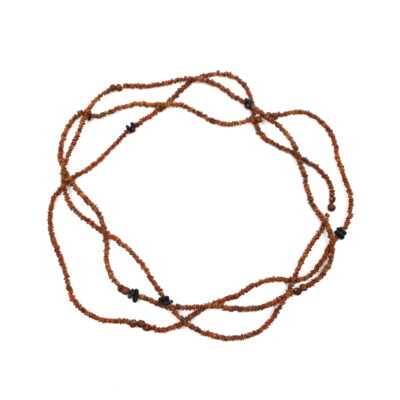Description
Artist Name: Djamirri Guyula
Medium: Gunga (Pandanus spiralis) natural dyes, and sterling silver
Description
Girriŋgirriŋ is the Yolŋu word for gunga, seed or shell made jewellery, necklace or ornament.
Common materials used as beads are the seeds from plants such as Gum Tree (Eucalyptus), Rattlepod (Crotalaria), Red Bead Tree (Adenanthera pavonina), Sicklepod (Senna obtusifolia), Ŋaraka (fish vertebrae) from Parrotfish, Kingfish, small Mäna (sharks) and stingray, and seashells. Gapan (white clay) and natural earth pigments are sometimes used to paint the beads.
Small seeds are pierced with a needle. Large seeds are collected and then a piece of wire is heated in a fire and used to pierce the hole. Seashells are collected at low tide on the surface of the mud amongst the mangroves. Then they are boiled, cleaned and pierced with a piece of wire.
Some jewellery pieces are woven from gunga (Pandanus spiralis). The spiky pandanus leaves are sometimes difficult to harvest, followed by the careful task of flaying the leaves before hanging them to dry.
Only the few central leaves of the palm growing from the core which have not bent are used. These can be ten or twenty feet high so a special crook known as a Galpuŋaniny must be used to work these out of the growing tree. The pandanus (known as Gunga- Pandanus Yirrkalaensis) recovers completely but cannot be reharvested for some months.
This is then dyed using natural dyes made from the bulbs, roots or bark of various woodland plants. The string is made from the bark of plants such as Kurrajong (Brachychiton populneus), Paperbark (Melaleuca quinquenervia) and Banyan (Ficus virens).

